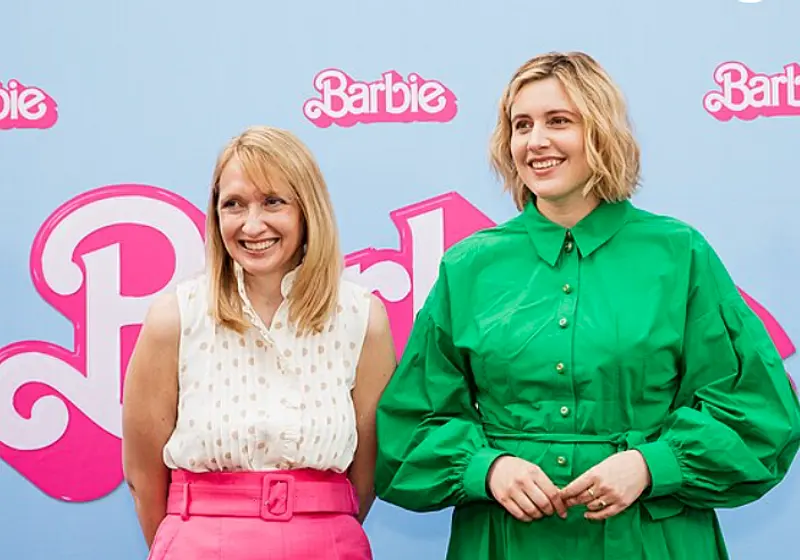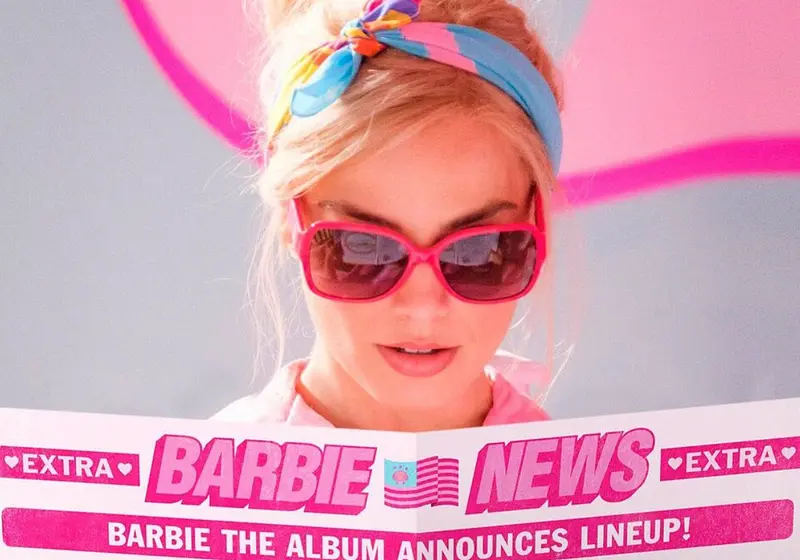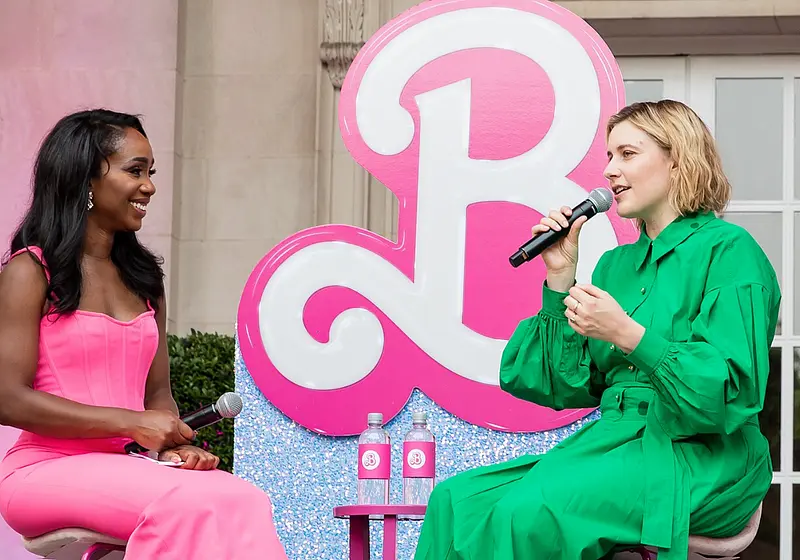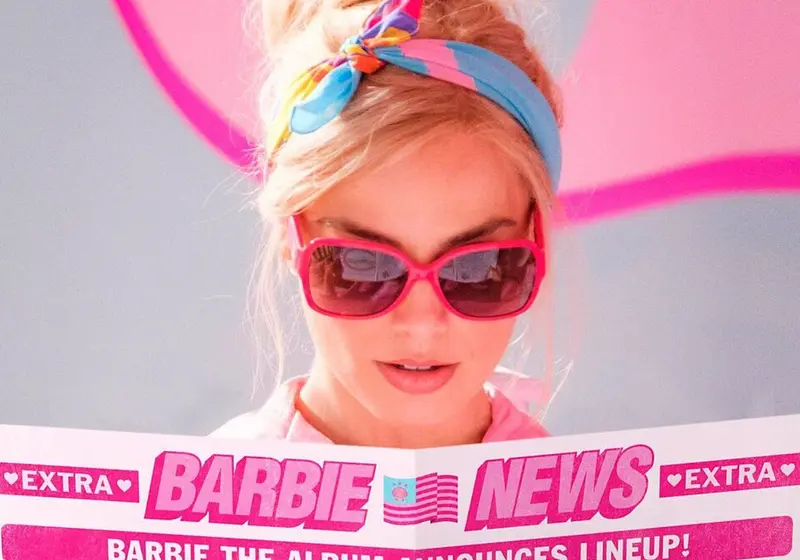When I stepped out of the movie theatre after watching Barbie, one question lingered in my mind that I later found resonated among countless girls on social media as well: HOW in the WORLD could I not love PINK when I was little?
Covered in florescent neon pink, the ground-breaking Barbie movie swept up a pink storm of revolution in areas like fashion, music, creation, and most importantly, our minds. When the whole world starts to share their opinions about something, and especially when the opinions get extremely bi-polar (and a little aggressive), you know you’ve struck a chord in society. Right now, Barbie has brought the elephant in the room to the table for discussion: feminism.
Let us slide into your dms 🥰
Get notified of top trending articles like this one every week! (we won't spam you)The current state of feminism & its dilemma
Feminism really started in the 1920s when society completed industrialization on a large scale. Women discovered that their position in modern society was just as valuable as those of men. Yet traditional beliefs are still stagnant, corresponding to ancient distributions of labor between the genders.
To combat the stereotypes, women began to fight for their right to vote, join the workforce, and attend elections. That’s what primarily determined feminism was going to be about change and the complete disruption of old systems.
After about a century of experimenting and shifting paradigms, we’ve now entered a phase where there are firm believers in feminism and concrete changes that are being made. Quoting directly from the Barbie movie:
“We mothers stand still so that our daughters can look back and see how far they've come.”
Looking back on this century, we realize countless women have marked their paths before us. We also realized rapid changes are occurring in how societies respond to the paths we’ve made. That brings us to the most prominent dilemma for the feminist movement.
Feminists are generally labeled radical, man-hating, and ignorant to other opinions. These comments don’t just come from certain men, some women marginalized by society also embody them. Rural housewives and uneducated girls who spent their lives immersed in patriarchal ideals feel shunned by the innovative movement. They were cut off from the ever-changing feminist club.
Right now, negative labelling is what’s holding feminism back most significantly. Without trust from the public and serious regard for what activists are doing, improvement will always be like an inside party and a pool of dead water.
Take the Quiz: Which Indian city is the perfect holiday spot for you!?
Let's match you with an Indian city that you would love!
What the Barbie movie is most criticized for
By making daring attempts, you’re opening yourself up to a storm of unexpected comments. This is very true for the Barbie movie. It is undoubtedly a huge step out from what we used to get from the entertainment media. (For instance, it’s one of the VERY few works where girls with relatively large body shapes appear and not have any offensive jokes made about them. Not using body shape as comic material means a lot, not just for the specific crowd, but also for reference to future media works.)
Aside from all that, the most criticized part of the Barbie movie is the seemingly messy ending. People are fighting fiercely online about what the ending meant. Right now, we see opinions like “So the whole deal about solving the feminist crisis is by proving how stupid men are?” “The solution to the holy problem that has troubled our society for so long is simply to let men fight each other with balloon toy horses on the beach?” Other opinions try to say “The ending is only pointing out the reality that men unite over hating women but divide over the fight for power.”
Of course, I’ll have to respectfully disagree with both of these opinions. I by no means think Greta Gerwig and her fellow production team were even trying to provide a feasible solution to the problem at all. The Barbie movie, at its core, is a business film, thus determining that it cannot provide the perfect cure to social inequality in less than two hours.
I think the production team tried very hard to show the audience this would NOT be a solution to real problems by making the scene as crazy and ridiculous as possible. I mean, beach boys fighting while singing in the sand, riding on balloon horses? I get the whole movie is in a weird setting, but this is bananas.
Such an anti-climatic ending determines the value of the movie in other places, so what are they?
The Jewel of the Movie
The true value of the movie is not that it provides a perfect solution to the feminism issue, it’s the details that make things click inside the audiences’ minds with epiphany: “Wow, THAT was discriminating? I did not notice that before! How come I’ve been putting up with it all the time?”
It’s these details that bring more members into this movement: women who were too immersed in patriarchal ideas to realize the catch, (rational) men who realize they perform the mentioned behaviors themselves (such as the classic “let me teach you” scene and the Godfather comment). Instead of marginalizing groups of society, we invite them into the club and show them what’s possible.
Here are just some details to look out for (the movie is definitely worth watching many times):
1. The roller skating catcall
SO many girls do not realize they have the right to resist public harassment. The male gaze is typically felt upon but not fought against. Once girls express their worries in public, people say things like “it’s an approval of how you look,” “just take it as a compliment.” To this, I would reply with a recent popular Korean feminist slogan:
You don’t have to care about how I look. I’m your future boss, not your future wife.
Girls are justified in feeling uncomfortable under the male gaze. The concise soliloquy Barbie made when she described her feelings is much felt.
2. Look, the supreme court (beauty pageant)
In a very brief scene just after Barbie and Ken arrive in the real world, Barbie pointed up towards a billboard and said:"look, the supreme court.” Yet when the camera scans the actual billboard, we see a beauty pageant poster with a dozen women standing in line.
The rise and fall of beauty pageants has been a long debated topic in the conversation concerning feminism. Is it a good idea to evaluate women based on looks, posture, whether they look confident in a bikini and give them a score and a title? Should women be rated on their level of sexuality? There’s actually an awesome Teen Magazine article that I think captures this precise point: And the Winner Is…No One? the Pitfalls of Pageant Culture
3. How Ken felt flattered being called “Sir”
After checking out an armful of books, Ken was about to leave the school when a woman asked for the time and addressed him with “sir.” Ken was immediately flattered and surprised at this recognition of status. Since Ken mirrors women in the real world in an alternate land, this scene could also be an allusion to the fact that people tend to treat males with respect but sometimes neglect to do the same to their female counterparts. The next time we feel obliged to call a male character “sir,” we should remind ourselves to give women in their places the same courtesy.
On the other hand, when girls receive sudden addresses of courtesy, we sometimes feel flattered and surprised, like Ken. This is because receiving respect sometimes isn’t habitual to us. This detail helps make girls realize that it’s common for women to be deprived of the respect they deserve, so that the next time they encounter this, they’ll react with more sensitivity to the issue.
4. “We just hide it well”
The whole movie theatre I was in went wild when this line was uttered. This was where Ken decided to get a job and thought it would be easy because he was male in a patriarchal world. The human resources staff whispered that being a male might actually be a downside when finding a job. Then Ken accused them of not implementing patriarchy well. To this the staff replied: “We do implement patriarchy, we just hide it well.”
At this point, Greta Gerwig abandoned any attempts at subtlety. She outwardly addressed the bias women face in the employment market. Women are constantly being denied opportunities due to reasons like maternity leave, labour divisions, and motherhood.
After countless attempts feminists made to restore equality in the workplace, the problem remains with hidden perspectives. Companies may try to seem like they’re female-friendly by hiring more women employees but denying them opportunities for promotion or better working environments.
5. Let me teach you!
This is absolutely the most sarcastic and realistic comment in the whole movie!! I dare any girl to say they’ve never talked about Marvel movies or the World Cup or NBA in front of a guy and get sneered at with a “let me teach you!” The funny thing is, much like how civilizations around the world coincidentally adopt similar developmental trajectories, this phrase is used worldwide and internationally. As a Chinese girl, I can tell you that Chinese guys have a similar saying which basically means: “let me test you.” When a girl said she’s watched Captain America, they’d say “oh you did? Let me test you, what was his shield made of?”
It is a complete patriarchal and domineering gesture to assume women do not have the ability to understand forms of entertainment just like men. It’s disrespectful and narrow to assume that women are all interested in nothing but nails and fashion.
These are just some teeny tiny descriptions of the movie’s details. There are so many other details (i.e. the Mojo Dojo Casa House fiasco, President Barbie handing drinks to Kens, the higher-ups of Mattel trying to put Barbie in the box, Barbie gaining courage to go see a gynecologist at the end, etc., etc., etc.) As mentioned before, these details really make people realize how patriarchy gets hold of the world around us without us being aware. That’s why I think the jewel of the movie is raising the consciousness of both women and men about what feminism is really trying to change.












.png)


